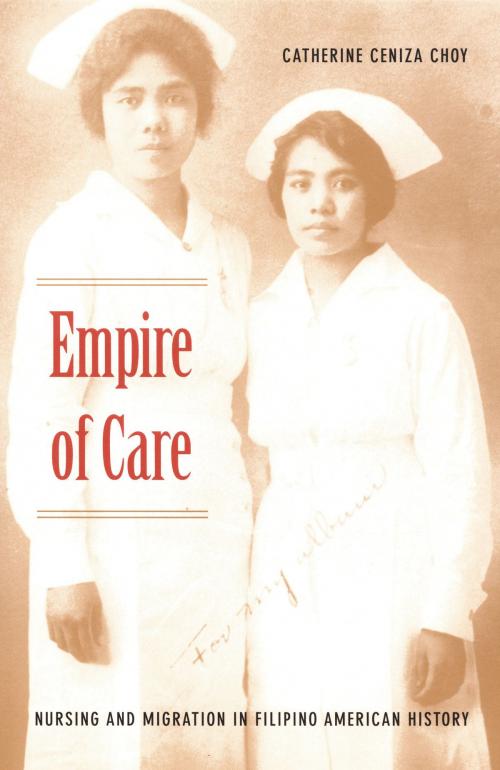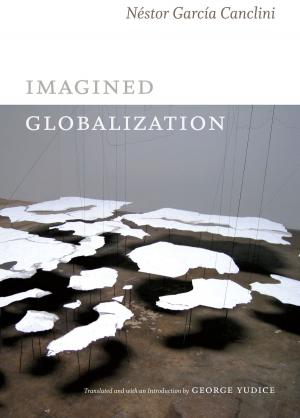Empire of Care
Nursing and Migration in Filipino American History
Nonfiction, Health & Well Being, Medical, Nursing| Author: | Catherine Ceniza Choy, Gilbert M. Joseph, Emily S. Rosenberg | ISBN: | 9780822384410 |
| Publisher: | Duke University Press | Publication: | January 31, 2003 |
| Imprint: | Duke University Press Books | Language: | English |
| Author: | Catherine Ceniza Choy, Gilbert M. Joseph, Emily S. Rosenberg |
| ISBN: | 9780822384410 |
| Publisher: | Duke University Press |
| Publication: | January 31, 2003 |
| Imprint: | Duke University Press Books |
| Language: | English |
In western countries, including the United States, foreign-trained nurses constitute a crucial labor supply. Far and away the largest number of these nurses come from the Philippines. Why is it that a developing nation with a comparatively greater need for trained medical professionals sends so many of its nurses to work in wealthier countries? Catherine Ceniza Choy engages this question through an examination of the unique relationship between the professionalization of nursing and the twentieth-century migration of Filipinos to the United States. The first book-length study of the history of Filipino nurses in the United States, Empire of Care brings to the fore the complicated connections among nursing, American colonialism, and the racialization of Filipinos.
Choy conducted extensive interviews with Filipino nurses in New York City and spoke with leading Filipino nurses across the United States. She combines their perspectives with various others—including those of Philippine and American government and health officials—to demonstrate how the desire of Filipino nurses to migrate abroad cannot be reduced to economic logic, but must instead be understood as a fundamentally transnational process. She argues that the origins of Filipino nurse migrations do not lie in the Philippines' independence in 1946 or the relaxation of U.S. immigration rules in 1965, but rather in the creation of an Americanized hospital training system during the period of early-twentieth-century colonial rule. Choy challenges celebratory narratives regarding professional migrants’ mobility by analyzing the scapegoating of Filipino nurses during difficult political times, the absence of professional solidarity between Filipino and American nurses, and the exploitation of foreign-trained nurses through temporary work visas. She shows how the culture of American imperialism persists today, continuing to shape the reception of Filipino nurses in the United States.
In western countries, including the United States, foreign-trained nurses constitute a crucial labor supply. Far and away the largest number of these nurses come from the Philippines. Why is it that a developing nation with a comparatively greater need for trained medical professionals sends so many of its nurses to work in wealthier countries? Catherine Ceniza Choy engages this question through an examination of the unique relationship between the professionalization of nursing and the twentieth-century migration of Filipinos to the United States. The first book-length study of the history of Filipino nurses in the United States, Empire of Care brings to the fore the complicated connections among nursing, American colonialism, and the racialization of Filipinos.
Choy conducted extensive interviews with Filipino nurses in New York City and spoke with leading Filipino nurses across the United States. She combines their perspectives with various others—including those of Philippine and American government and health officials—to demonstrate how the desire of Filipino nurses to migrate abroad cannot be reduced to economic logic, but must instead be understood as a fundamentally transnational process. She argues that the origins of Filipino nurse migrations do not lie in the Philippines' independence in 1946 or the relaxation of U.S. immigration rules in 1965, but rather in the creation of an Americanized hospital training system during the period of early-twentieth-century colonial rule. Choy challenges celebratory narratives regarding professional migrants’ mobility by analyzing the scapegoating of Filipino nurses during difficult political times, the absence of professional solidarity between Filipino and American nurses, and the exploitation of foreign-trained nurses through temporary work visas. She shows how the culture of American imperialism persists today, continuing to shape the reception of Filipino nurses in the United States.















